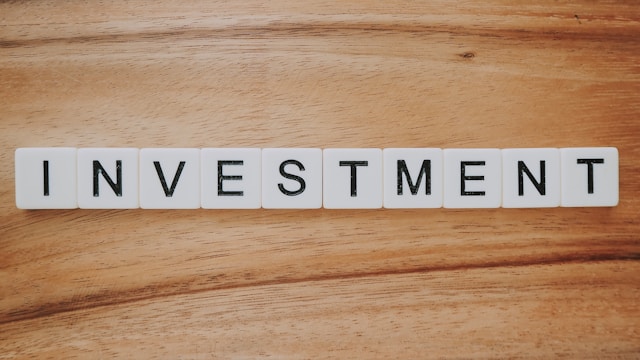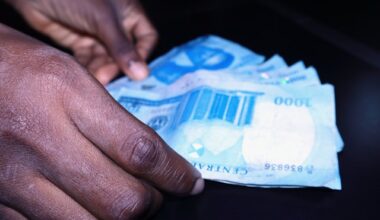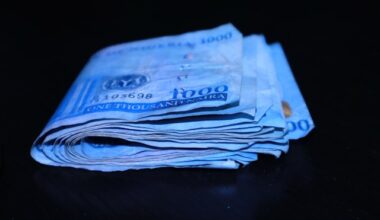Let’s be real: watching the naira tumble in value is deeply unsettling. Whether you’re saving for your future, trying to build wealth, or just looking to protect what you already have, currency collapse raises the stakes. In this shaky economic landscape, what feels “safe” might actually be a trap.
In this post, we’ll walk through the three types of investments every Nigerian should avoid when the naira collapses — and why they’re risky. By understanding these pitfalls, you can make smarter decisions, preserve your purchasing power, and position yourself to weather the storm.
Why the Naira’s Collapse Puts Investments at Risk
Before diving in, it’s worth exploring why a collapsing naira threatens certain investments more than others.
- When the naira depreciates, the cost of imports rises, and companies that rely on foreign currency obligations suddenly face huge losses. (TheCable)
- Many businesses borrow or incur costs in USD (or other strong currencies) but earn profits in naira. That mismatch can be fatal in a devaluation cycle. (TheCable)
- Inflation often surges alongside devaluation, eroding the real returns on “safe” fixed-income instruments. (Pulse Nigeria)
Given that, not every investment that once seemed “low risk” remains so when the currency is imploding.
The 3 Investments to Avoid When the Naira Collapses
Here are the three kinds of investments you should be very cautious about — or outright avoid — when the naira is under severe devaluation pressure.
1. Long-Term Fixed-Rate Naira-Denominated Government Bonds
Why they’re risky:
- Imagine locking your money into a bond that pays 12% per year, but inflation is running at 30%. In real (inflation-adjusted) terms, you’re losing purchasing power.
- These bonds don’t protect you from currency risk. If the naira weakens, your returns in foreign currency equivalence could be significantly eroded.
- During a collapse, interest rate hikes may follow, reducing the value of your existing bonds in the secondary market.
Real-world context:
According to How to Stay Rich in Nigeria, locking money in long-term government bonds with low yields is dangerous during inflationary periods and currency collapse.
Alternatives to consider instead:
- Inflation-linked bonds or treasury bills that adjust returns based on inflation.
- Shorter-duration bonds, so you’re not locked in if the economic picture changes.
2. Naïvely Holding Cash in Naira Savings Accounts
Why it’s risky:
- Banks’ savings interest rates typically do not keep up with high inflation or rapid devaluation. Over time, your naira balance simply buys less.
- Liquidity is an illusion: even though it’s “cash,” its real value can collapse if the currency craters.
- When many people rush to convert naira into anything more stable, you may face pressure to withdraw or convert — often at unfavorable rates.
Supporting insight:
In inflationary times, keeping large sums in low-yield savings accounts is often counterproductive. Also, financial advisors often recommend diversifying into assets less tied to the local currency. (Coronation Conversations)
Smarter approaches:
- Use foreign currency savings accounts (if available) to hedge against naira devaluation.
- Consider high-yield fintech platforms that might offer better rates (or even foreign-currency denominated options).
- Build an emergency fund in more stable assets — not just naira cash.
3. Overinvesting in Naira-Denominated Equities and Local Non-Diversified Businesses
Why it’s risky:
- Many Nigerian companies report earnings in naira but have foreign liabilities (imported inputs, foreign debt, FX exposure). As the naira collapses, their costs could explode, and profits may shrink dramatically.
- Dividend payouts or share valuations may lag behind inflation or get wiped out by currency losses.
- If the economy spirals, consumer demand could fall, further damaging local businesses.
Evidence & insight:
MTN Nigeria, for example, disclosed that its capital spending (CAPEX) in naira is being eroded by currency devaluation. (Nairametrics) This demonstrates how even large, seemingly stable companies are vulnerable when their costs are in USD or other foreign currencies.
Better strategies:
- Focus on diversified international exposure: assets in foreign markets or multinational companies less exposed to naira risk.
- Invest in non-currency assets like real estate (in more stable economies) or commodities.
- Use hedging tools (where available) and adopt a balanced portfolio, rather than putting all your eggs in naira-dependent businesses.
Comparison Table: Risk vs. Alternative Strategies
Here’s a simple comparison of the risky investments vs. more resilient alternatives:
| Risky Investment | Why It’s Dangerous During a Naira Collapse | Safer Alternative |
|---|---|---|
| Long-term fixed-rate naira bonds | Real return (adjusted for inflation) may be negative, FX risk | Shorter-term or inflation-linked bonds, even foreign-currency instruments |
| Naira cash in savings account | Loses purchasing power quickly, not hedged | Foreign-currency accounts, high-yield platforms, real assets |
| Overexposure to naira equities / naira-dependent businesses | Corporate costs rise, profits shrink, vulnerability to FX shocks | International equities, non-currency assets, diversified portfolio |
Key Insights to Remember
- Currency risk is real, not theoretical. A collapsing naira doesn’t only hurt importers – it eats into your investments.
- Real returns matter more than nominal ones. At 30% inflation, a “good” 12% return is a loss in real terms.
- Diversification isn’t just about types of assets. It’s also about currency exposure.
- Liquidity is deceptive. Cash in naira might feel available, but its value erodes fast in a collapse.
- Use hedging where possible. Tools like forward contracts or inflation-linked securities can provide a buffer. Even basic strategies — like keeping part of your savings abroad — help.
Conclusion
If the naira collapses, not every investment you once trusted will save you — in fact, some might put you at greater risk. The key is to avoid naively “safe” naira-based investments that don’t account for devaluation, inflation, or currency mismatch.
By steering clear of long-term fixed-rate naira bonds, large naira-denominated cash holdings, and overexposure to naira-dependent equities, you improve your odds of preserving your wealth. Instead, focus on assets that either protect you from inflation or hedge currency risk.
In uncertain economic times, smart investing isn’t about chasing the highest returns — it’s about survival, preservation, and flexibility. Be intentional, stay educated, and don’t let the currency collapse trap you into bad decisions.
The Silent Danger of Relying on Naira: How Fast Your Buying Power Can Vanish
This Surprising Nigerian Tax Rule Could Cost You ₦100,000 If You Don’t Act Now






1 comment